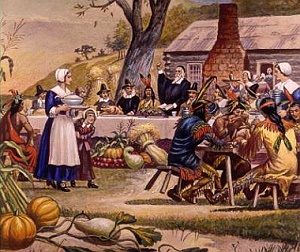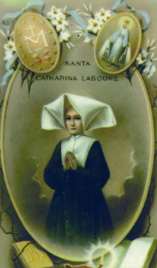 Dear readers, Catholic Online was de-platformed by Shopify for our pro-life beliefs. They shut down our Catholic Online, Catholic Online School, Prayer Candles, and Catholic Online Learning Resources—essential faith tools serving over 1.4 million students and millions of families worldwide. Our founders, now in their 70's, just gave their entire life savings to protect this mission. But fewer than 2% of readers donate. If everyone gave just $5, the cost of a coffee, we could rebuild stronger and keep Catholic education free for all. Stand with us in faith. Thank you. Help Now >
Dear readers, Catholic Online was de-platformed by Shopify for our pro-life beliefs. They shut down our Catholic Online, Catholic Online School, Prayer Candles, and Catholic Online Learning Resources—essential faith tools serving over 1.4 million students and millions of families worldwide. Our founders, now in their 70's, just gave their entire life savings to protect this mission. But fewer than 2% of readers donate. If everyone gave just $5, the cost of a coffee, we could rebuild stronger and keep Catholic education free for all. Stand with us in faith. Thank you. Help Now >
Deal W. Hudson: Why I'm a Poor Student
FREE Catholic Classes
I've often wondered why I worked better with some teachers more than others. Some of my teachers I found personally very appealing, but I would find myself struggling with what they wanted me to know and how to get an angle on knowing it. While others, perhaps not appealing at all, were able to find their way to my mind in a more direct route.
Highlights
Catholic Online (https://www.catholic.org)
5/6/2014 (1 decade ago)
Published in U.S.
Keywords: study, student, learning, education, experience, docility, docilitas, virtue, Deal W. Hudson
WASHINGTON,DC (Catholic Online) - I've often wondered why I worked better with some teachers more than others. Some of my teachers I found personally very appealing, but I would find myself struggling with what they wanted me to know and how to get an angle on knowing it. While others, perhaps not appealing at all, were able to find their way to my mind in a more direct route.
The problem was, what was thought to be the cardinal virtue for the student - docilitas - we know the word in its English form, docility, meaning responsive, easily taught, or receptive. Sometimes docility is taken as a synonym for aptitude, which is misleading. An aptitude can be limited to a few discreet subjects while docility means a person is, well, very teachable.
I've always been a very docile, if sometimes naughty, student. I was eager to learn, often had my hand up, loved to read and write, and always wanted the teacher to call on me. Yes, I was a bit of a show off! There was that spring day in 3rd grade at Mt. Vernon Elementary School when the teacher was facing the board. I was able to take every book out of every desk in the room and toss them out the window onto the lawn below. I did say I was naughty!
Whenever I have struggled to learn, I've come to the conclusion that I was trying too hard, that is, I was too docile. Docilitas is indeed a virtue, but how easy it is to forget that the human virtues lie in the mean. My excess of docility led to three obstacles to learning: eagerness to please the teacher; going to the extreme in carrying out instructions; and the anxiety of not doing either of the first two.
A good example is the Yoga for Golfers class I took last year to become more flexible. There were three of us, all middle-aged, squatting in front of a perfectly shaped 25-year old. It was only later that I realized the instructor was not an experienced teacher, especially with beginners. Even though it was very painful, I made myself copy every move she asked us to make. The guys to each side eventually gave up, but not me. I was determined to please the teacher. The only person who was really pleased was my chiropractor who got three office visits to undo the damage!
If a golf instructor tells me to turn my left hip back and around I will practically throw myself on the ground to prove I can do it. I recall when I was learning to shoot skeet, I didn't say a word through the entire lesson in spite of the fact that my left shoulder became painful and inflamed. When the instructor saw me rubbing it afterward, he asked to take a look. "Why didn't you say anything? Your shoulder is black and blue!" He took a look at my grandfather's 16-gauge shotgun, put in a shell and fired it to feel the kick. All he did was shake his head and hand it back, saying, "Either get a pad for that stock or bring a different gun, next time."
The best students know when enough is enough - their docility has its limits. They know, as St. Thomas Aquinas once said, the knower is the first cause of learning. Good students realize that the mind is not an empty receptacle into which the teacher pours knowledge. Rather they allow the teacher to activate the knowing power of the mind to meet the teacher halfway, where the actions of teaching and learning combine to lift both to a higher level. While the student does overdo it, the teacher doesn't treat the student as a passive note-taker. Plato and Socrates called it the process of dialectic (διαλεκτική).
At the end of the day, the teacher becomes only an occasion for learning, a stimulus to go out and learn it for yourself. An ethics teacher can define the cardinal virtues for you, but it's up to each individual, over many years, to put that knowledge into practice. As the later great golfer Ben Hogan replied when asked for his "secret" to such magnificent ball striking - "The secret's in the dirt!" Understood simply, Hogan was saying we all have to learn things for ourselves, by hard practice, by the experiences of success and failure.
I'm not sure why I overdid myself with docility for so long. Was I simply trying to please, to show off, to make good grades or elevate my performance? What kept me in the posture, in spite of the growing body of evidence against it? I kept telling myself I was doing the right thing by listening so closely, following instructions to the letter, and watching for the teacher's approval. None of that really mattered, as it turned out: What mattered were the hours and days I spent "in the dirt," learning it for myself.
© Deal W. Hudson, Ph.D
-----
Deal W. Hudson is president of the Morley Institute of Church and Culture, Senior Editor and Movie Critic at Catholic Online, and former publisher and editor of Crisis Magazine.This column and subsequent contributions are an excerpt from a forthcoming book. Dr. Hudson's new radio show, Church and Culture, is heard on the Ave Maria Radio Network.
---
'Help Give every Student and Teacher FREE resources for a world-class Moral Catholic Education'
Copyright 2021 - Distributed by Catholic Online
Join the Movement
When you sign up below, you don't just join an email list - you're joining an entire movement for Free world class Catholic education.
-

-
Mysteries of the Rosary
-
St. Faustina Kowalska
-
Litany of the Blessed Virgin Mary
-
Saint of the Day for Wednesday, Oct 4th, 2023
-
Popular Saints
-
St. Francis of Assisi
-
Bible
-
Female / Women Saints
-
7 Morning Prayers you need to get your day started with God
-
Litany of the Blessed Virgin Mary
Daily Catholic
 Daily Readings for Thursday, November 28, 2024
Daily Readings for Thursday, November 28, 2024 St. Catherine Laboure: Saint of the Day for Thursday, November 28, 2024
St. Catherine Laboure: Saint of the Day for Thursday, November 28, 2024 The Salve Regina (Hail Holy Queen): Prayer of the Day for Thursday, November 28, 2024
The Salve Regina (Hail Holy Queen): Prayer of the Day for Thursday, November 28, 2024- Daily Readings for Wednesday, November 27, 2024
- St. James Intercisus: Saint of the Day for Wednesday, November 27, 2024
- Prayer to Saint Anthony of Padua: Prayer of the Day for Wednesday, November 27, 2024
![]()
Copyright 2024 Catholic Online. All materials contained on this site, whether written, audible or visual are the exclusive property of Catholic Online and are protected under U.S. and International copyright laws, © Copyright 2024 Catholic Online. Any unauthorized use, without prior written consent of Catholic Online is strictly forbidden and prohibited.
Catholic Online is a Project of Your Catholic Voice Foundation, a Not-for-Profit Corporation. Your Catholic Voice Foundation has been granted a recognition of tax exemption under Section 501(c)(3) of the Internal Revenue Code. Federal Tax Identification Number: 81-0596847. Your gift is tax-deductible as allowed by law.







 Daily Readings for Thursday, November 28, 2024
Daily Readings for Thursday, November 28, 2024 St. Catherine Laboure: Saint of the Day for Thursday, November 28, 2024
St. Catherine Laboure: Saint of the Day for Thursday, November 28, 2024 The Salve Regina (Hail Holy Queen): Prayer of the Day for Thursday, November 28, 2024
The Salve Regina (Hail Holy Queen): Prayer of the Day for Thursday, November 28, 2024

